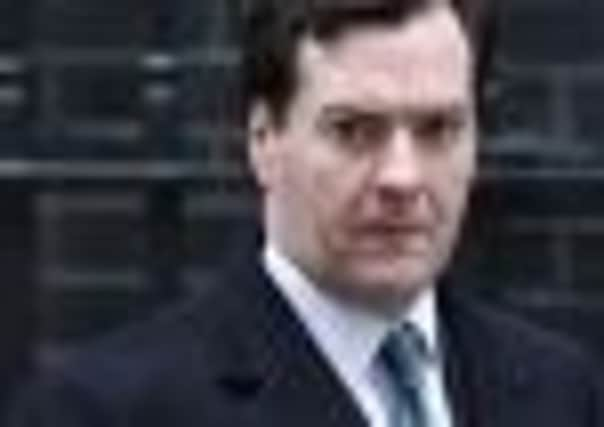Leaders: George Osborne must heed the IMF’s bleak warning


Almost as bleak is the prediction for next year, with the UK suffering one of the largest downward revisions in the IMF’s survey of the world’s growth prospects. In April they thought our growth would be a respectable 2 per cent. They now believe it will be just 1.4 per cent.
And amidst the gloomy facts and figures in the seven page report, World Economic Outlook, the global lender, in unusually frank language for such a body, warned downside risks continued “to loom large”, if there was “delayed or insufficient policy action” by governments.
Advertisement
Hide AdAdvertisement
Hide AdThe downgraded figures for the UK demonstrate this message is not just aimed at the international organisations, such as the European Central Bank and the eurozone countries acting together, but also at Britain, where the coalition’s efforts to revive the economy are demonstrably not working.
And what is of most concern is this IMF report is just the latest in which this country has been told in no uncertain terms the measure the UK government has introduced are having little or no effect in producing the growth, which produces the jobs, which produces taxes, which stimulates the economy.
Although yesterday’s report was couched in more general terms it was only last May that the IMF’s Christine Lagarde effectively told Chancellor George Osborne that he needed to introduce a Plan B. The first part of that would have been even lower interest rates, followed by more quantitative easing, and then investment in capital projects – paid for controversially by curbing public sector pay – to create employment.
Of these, we have had only further quantitative easing by the Bank of England. Interest rates have not gone below the already low 0.5 per cent, though Mr Osborne and the Bank might argue they are as low as they can realistically be. Substantial capital investment, particularly paid for by politically difficult cuts elsewhere, has been noticeable by its absence.
For ordinary people struggling to find a job, or to hold on to one; for the millions fighting to pay their mortgages every month; for the thousands of young people unemployed; for the pensioners whose savings have been obliterated; the IMF’s message will strike fear into their hearts.
After four years of austerity following the banking crash there seems no end in sight to the misery and uncertainty. Realistically, we know there is no magic bullet, that the economy cannot be turned round in a day. But that is no excuse for inaction. The Chancellor must heed these bleak warnings, the latest in a long line of bleak warnings, and act.
SNP’s Nato policy needs to change
Writing in this newspaper in June 2005, Kenny MacAskill argued passionately for the Nationalists to accept an independent Scotland should remain part of Nato. It is a measure of how slowly modernisation happens inside the SNP that only now is there to be a concerted effort by the leadership to change the policy to the position Mr MacAskill advocated.
With an independence referendum on the horizon, the SNP leadership clearly recognises its current policy is weak and would be exploited by its opponents in the run-up to 2014.
Advertisement
Hide AdAdvertisement
Hide AdDefence spokesman Angus Robertson is to raise the issue at the party’s national conference, where he will argue for an independent Scotland to be a non-
nuclear member of Nato.
Although Mr Robertson’s call is couched carefully in terms which include Nato continuing “to respect the right of members to only take part in UN-sanctioned operations” it is likely to be a hard fight.
For most people the idea of remaining a member of Nato after independence is sensible. Other small countries such as Norway are entirely comfortable with this stance; why not Scotland? SNP traditionalists will see it differently, pointing out, correctly, that even Nato countries without nuclear weapons ultimately rely on the alliance’s nuclear umbrella to provide last resort protection from attack.
Changing this policy is important for the SNP in terms of the message it sends to voters ahead of the referendum about maturing as a political party. This might even be seen as the Nationalist’s Clause Four moment. The move will not sit well with SNP members for whom a non-nuclear stance is a central tenet.